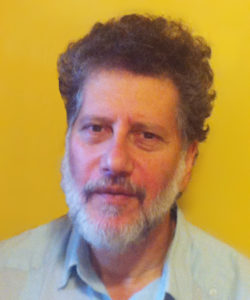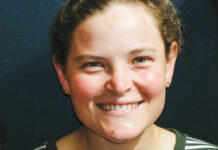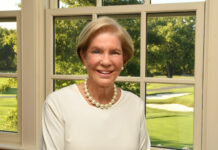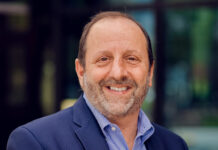
Correction 6/10/2022: An earlier version of this article stated that David Zinner was a member of the Jewish Communal Practices of Greater Washington, when he was in fact a member of the Jewish Funeral Practices Committee of Greater Washington. The Baltimore Jewish Times regrets this error.
While attending meetings of the Jewish Funeral Practices Committee of Greater Washington, David Zinner began learning more about the Jewish traditions around death, including about the washing and dressing of a body.
Zinner believed that someone needed to step up and help Jewish communities across the continent, including chevra kadisha groups, learn more about these practices. He founded the nonprofit Kavod v’Nichum with that purpose.
“[I] saw that there was a need for this to be taken beyond the local community to the entire North American community,” said Zinner, 71, who served as executive director of Kavod v’Nichum before retiring. “There were lots of people who wanted this information and didn’t know how to get it. So that’s how it all got started.”
Zinner is a member of Columbia Jewish Congregation and lives in Columbia with his wife, Roslyn. They have two daughters, Naomi and Leah.
He is originally from St. Louis. His parents both came from Germany to escape Hitler, he said. In order to avoid the draft for the war in Vietnam, Zinner joined the Army Reserve during high school, later getting out as a conscientious objector.
Enrolling in Washington University in St. Louis in 1968, Zinner made it midway through his senior year before dropping out, as he had found work managing a local food co-op and was having too much fun to continue bothering with school. Afterward, he found another position at a food co-op in Chicago.
Zinner’s wife, who was originally from Baltimore, nudged him toward relocating to the area. He found positions in Washington, D.C. for different nonprofits, including B’nai B’rith Women, and eventually became the executive director of Tifereth Israel Congregation.
In 1995, having found a desire to earn a bachelor’s degree before his children did, Zinner finished his college studies at the University of Maryland. Washington University accepted his coursework and awarded him his degree, more than 20 years after he had started it.
In the spring of 2019, Zinner opened his home to a pair of asylum seekers, a mother and a son, from Honduras, he said. Having come legally across the border, they lived with him for nearly three years. The mother eventually found work in a school system while both learned English. They moved out only a few months ago, he added.
“When my parents were in Germany, trying to escape Hitler, they were looking for someone to sponsor them,” Zinner said when asked what compelled him to open his home in this way. “And it wasn’t easy to find someone willing to sponsor them. They eventually did with the help of Jewish Family Services and HIAS. But we wanted to basically pay it forward.
“It’s not possible to thank the people who helped my parents anymore, but we can demonstrate that this is the right thing for people to do, whether they’re Jewish or not,” Zinner said.
Asked about his proudest accomplishments at Kavod, Zinner noted that they had their first North American conference in 2003, with the 20th conference planned for this year.
“That’s pretty cool,” Zinner said. “We have, typically, between 100 and 200 people who come to our conferences from all over the country. Now we’re doing them on Zoom for the last few years, but they really bring together people who are doing this work, and those are pretty impressive.
“They typically last for three days or four days, with speakers and workshops and music and poetry … and hands-on things,” Zinner continued. “At one conference we made caskets; at another conference we had sewing of burial garments demonstrations, lessons.”
Zinner also spoke of the creation of Kavod’s Gamliel Institute, which focuses on leadership training regarding Jewish end-of-life practices.
“When people graduate, they have lots of resources and skills to be able to help organize in their own community,” Zinner said.
Zinner has found that, when people get involved in the types of rituals that accompany a death in the Jewish community, they often become more involved in Jewish life more generally.
“While we might be focusing on one big, giant, broad area, they may take it beyond that and become president of their synagogue or a regular minyan-goer or things like that,” Zinner said.







